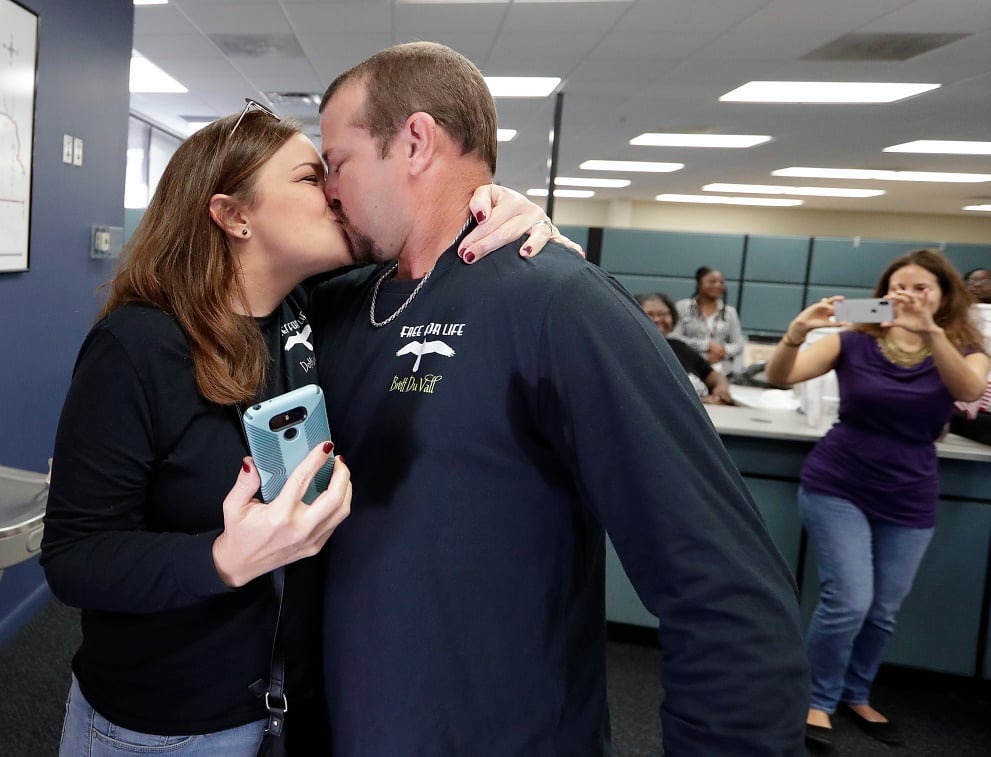ATLANTA (CN) — A federal appeals court on Wednesday halted the voting registration of thousands of Florida felons who cannot pay fines or fees, just weeks after a lower court threw out the state law mandating payment of all legal financial obligations before voting.
The 11th Circuit decision granted Florida Republican Governor Ron DeSantis’ request to suspend voter registration until the full court hears the case.
The Atlanta-based appeals court did not signal if any decision would occur before the November elections. An initial hearing is set for Aug. 11, which is past the registration deadline for Florida’s Aug. 18 primary elections.
Last year, the Campaign Legal Center, American Civil Liberties Union and the NAACP sued Florida over SB 7066, a law requiring felons to pay all restitution, fines and fees before they are eligible to vote.
Republican lawmakers passed the controversial measure just months after Florida voters overwhelming approved Amendment 4, a constitutional amendment restoring voting rights to most felons “after they complete all terms of their sentence including parole or probation.” The amendment did not mention restitution or fines.
After an eight-day trial in May, U.S. District Judge Robert Hinkle ruled the 24th Amendment prohibits Florida from conditioning voting on payment of fines and fees. The law, Hinkle said, was a “pay-to-vote system.”
DeSantis lodged the appeal days later. The 11th Circuit had previously upheld an injunction against SB 7066 and will now rehear the case en banc.
The case, Jones v. DeSantis, could have lasting implications for politics statewide and nationally as Florida’s elections typically have razor-thin margins. In the 2016 presidential election, Donald Trump took the state with less than 120,000 votes.
More than 774,000 Florida felons have some type of legal financial obligation, according to a study submitted to the court.
In a statement, Campaign Legal Center Vice President Paul Smith called the 11th Circuit decision “a setback.”
“The district court’s decision to block Florida’s pay-to-vote system followed clear Supreme Court precedent,” Smith said. “We are hopeful that the court of appeals will follow suit and confirm once and for all that wealth cannot determine a person’s eligibility to vote.”
Citing the “ongoing legal matter,” a spokesperson for the governor’s office declined to comment until the full 11th Circuit reaches a decision.
The decision to rehear the case is rare. In February, a three-judge panel of the court upheld an earlier ruling by Hinkle, a Bill Clinton appointee, that granted voting rights to the 17 felons in the case. Hinkle’s May ruling applied to all felons who cannot pay court-ordered restitution, fines and court costs. When DeSantis’ attorneys first asked for a full court hearing on the matter, the circuit judges declined.
Florida does not have a statewide database of those who owe restitution and fines and the state’s byzantine patchwork of record-keeping prevented many felons from learning about outstanding financial obligations before registering to vote.
Hinkle’s May decision required county supervisors of elections to allow felons to fill out a form attesting to indigency. In Hillsborough County, officials created a special court to verify the indigency of potential voters and grant them the right to vote.
Prior to the passage of Amendment 4, Florida had the highest number of disenfranchised felons in the country, according to a 2016 report by the Sentencing Project. The Sunshine State was one of only three states that banned ex-convicts from voting for life.
In the first three months after the amendment took effect in January, more than 2,000 formerly incarcerated Floridians registered to vote. Advocates say thousands more have registered since.
Subscribe to Closing Arguments
Sign up for new weekly newsletter Closing Arguments to get the latest about ongoing trials, major litigation and hot cases and rulings in courthouses around the U.S. and the world.









